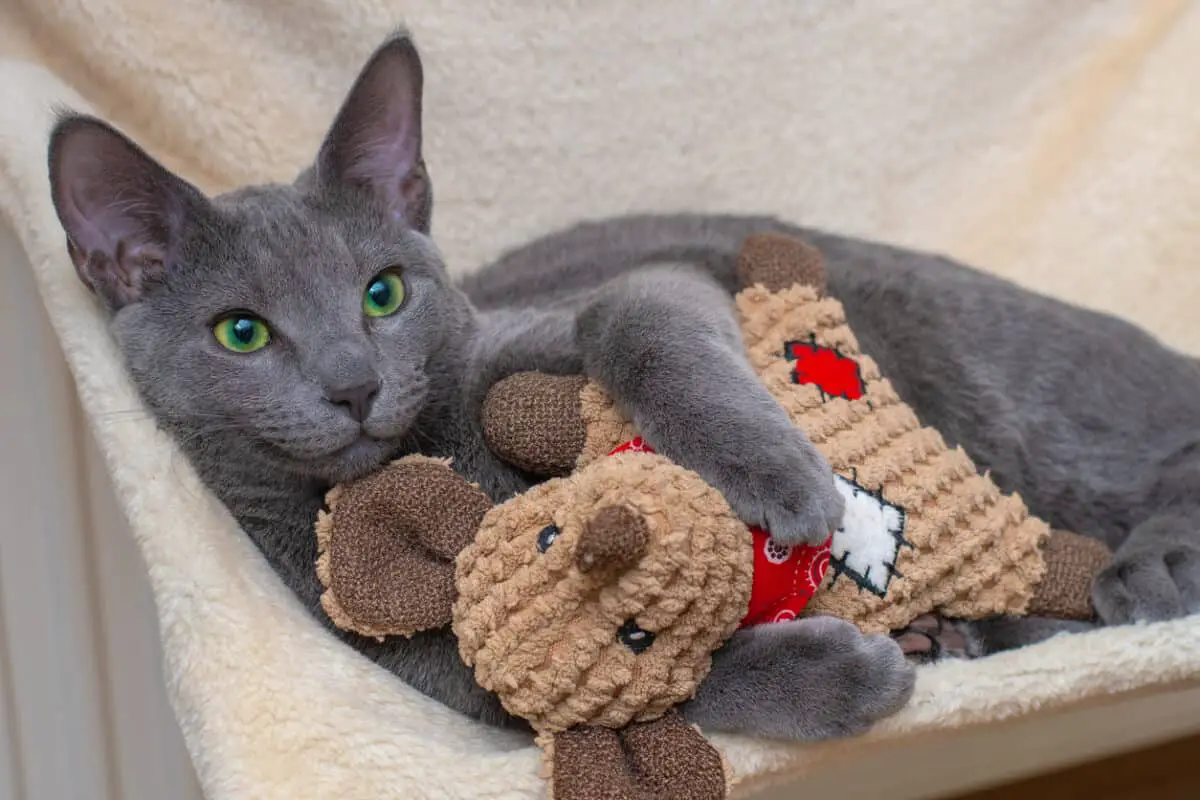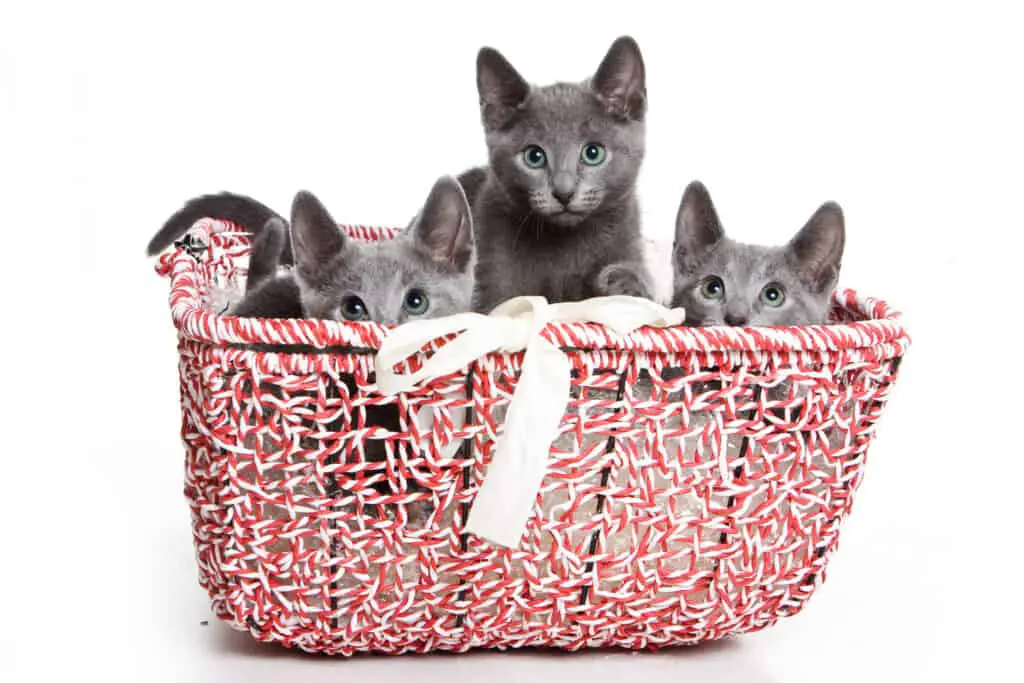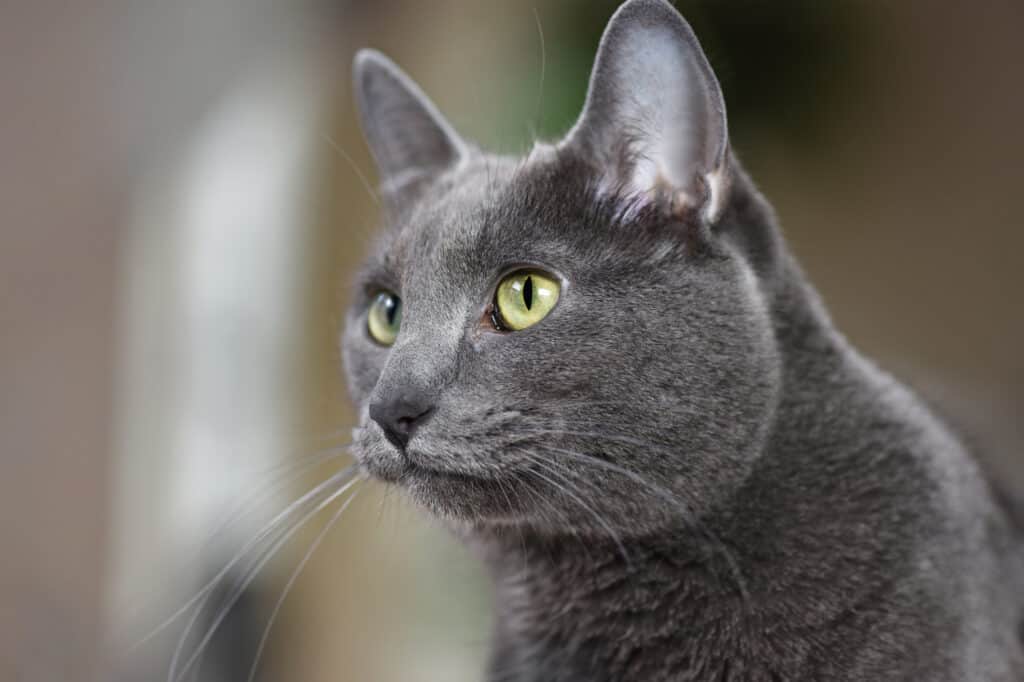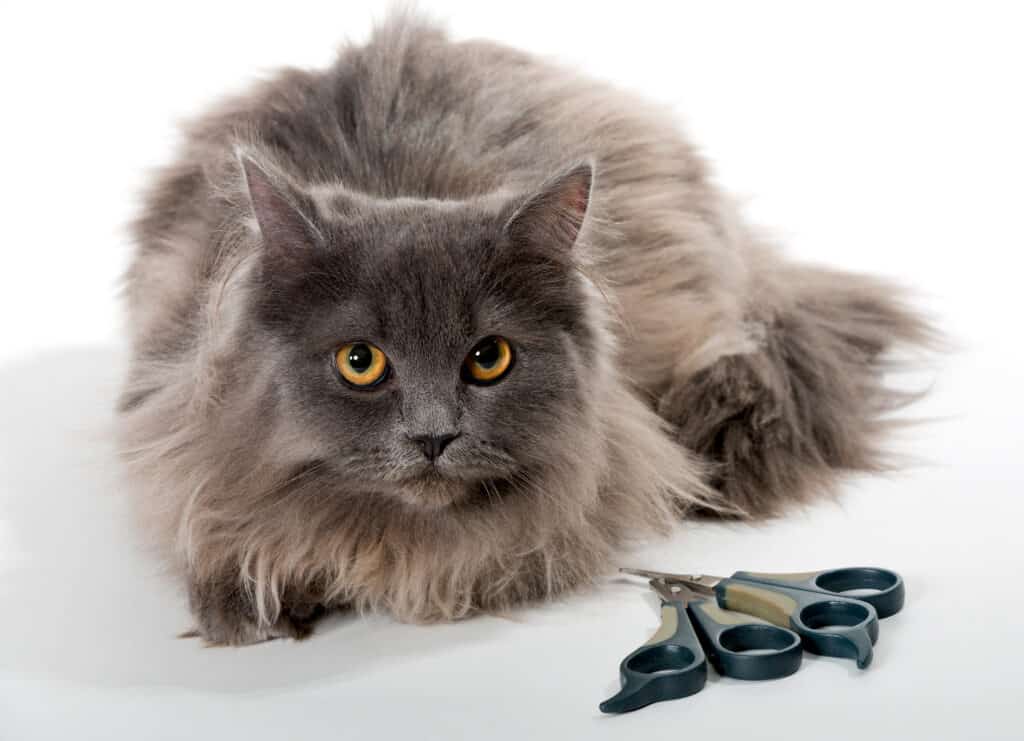Are you a new parent to a Russian blue cat? Congratulations! These intelligent, affectionate creatures will bring so much joy into your home—and because this breed is naturally independent and has a strong constitution, they are straightforward to take care of.
How to take care of your Russian Blue cat – Life stages
That said, providing your cat with the right food, environment, and care is still essential. Here’s what you need to know about taking care of your Russian blue at every stage of their life.
Newborns – (0 to 3 weeks old)
Your mama cat will provide almost everything your newborn Russian cat needs. You have to ensure that she gets enough nutrition to produce good milk.
Kittens must have a warm, dry, and comfortable place. Mama cat will take care of this, but it’s a good idea to provide soft and warm bedding or cloth.
Mother cats prefer hiding their litter in a dark and private place.
At this point, both mother and kittens need to have private time. Avoiding the stress of a noisy and busy environment helps the mother to provide and care for her new babies.
Russian blues have a cautious temperament and will move their babies if they feel it is noisy or has too many people. So, make sure pets or curious children don’t keep disturbing the newborns.
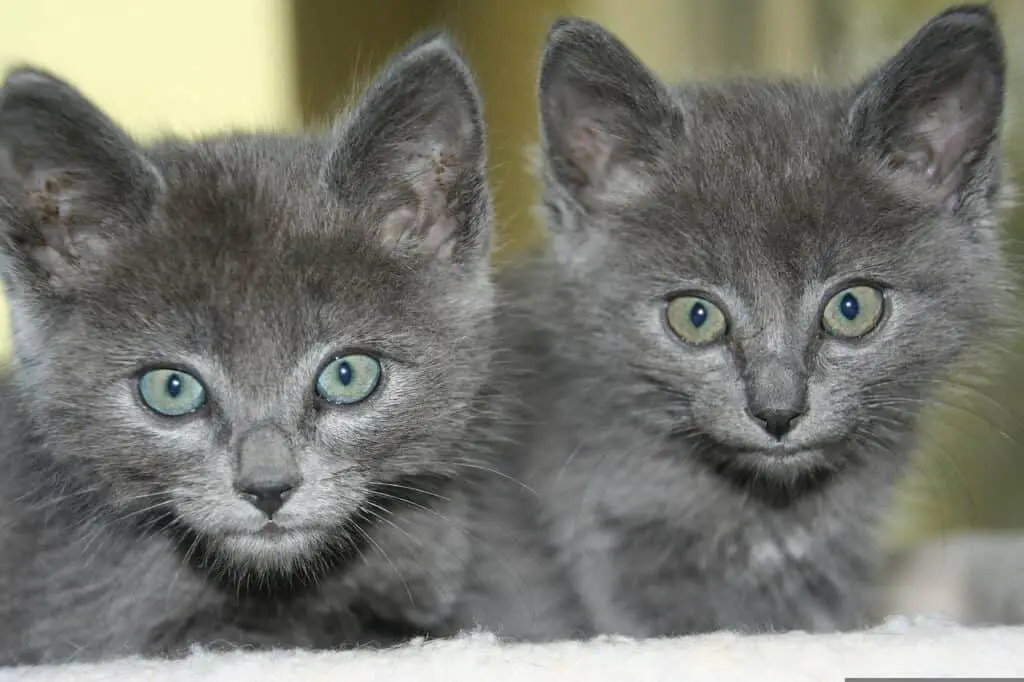
Four weeks old
Once your kittens start walking around and exploring, they’re ready to socialize. Interact with them by petting, playing, and gently holding them.
Russian blues are an amiable breed, so they will tolerate being carried and petted. Showing them much love at this young age will help them learn to trust humans and become even more affectionate.
At around 4 to 5 weeks old, kittens are ready to start trying solid food. It’s best to give them canned kitten food, which is moist and easy to digest and has the nutrients they need right now.
Start with a tablespoon of food placed in a small and shallow dish, then gradually increase the amount as they show more interest and develop a greater appetite.
You can also start training them to use the litter box—Russian blues are very smart, so they’ll learn it really quickly with repetition and praise. They may need a low-lying box, so they can easily jump in and out.
Six to eight weeks
At six weeks, your kitten can already start trying solid food. Moisten the kibble with water or kitten milk before transitioning into completely dry food.
You should also schedule your first visit to the vet and begin getting vaccines that protect your fur baby from feline distemper, calicivirus, feline herpes, and rabies. Vaccines are usually given every 3 to 4 weeks until your kitten reaches four months old.
Look at this interesting article from The Spruce Pets about kittens’ first visit to the vet.
Until now, your mama cat has been responsible for cleaning the kittens. But it’s a good time to start the routine of checking the ears for mites and infections and washing the face as needed. Do not bathe the kitten until it is at least eight weeks old.
Eight weeks to six months
Your kitten is growing up fast and is likely very curious and playful. Since Russian blues have a strong prey instinct, they like toys they can chase, such as feather teasers or even a small piece of crumpled paper.
Russian blues need routine and a predictable environment and don’t adapt quickly to change. So be sure to give meals at regular times, get them used to being groomed once a week, get nails trimmed, bathe, and be in a carrier whenever you go out. It’s easier to introduce these experiences now than at a later age.
Suggested reading: Do Russian Blues Shed a Lot? – Best Grooming Tips
Six months to three years
During this period, your kitten reaches “adolescence” and gradually transitions into adulthood. They will start looking less like a baby: facial features will look more elongated, and their eye color will change from yellow with an emerald ring to a bright green.
Your fur baby will be ready to start eating food for adult cats by one year old. Russian blues are prone to obesity because they love food and will use their natural intelligence and vocalization to ask for it.
Talk to your vet about the best cat food and the right portions for your cat’s age. And remember, a fat cat may look cute but has a higher risk for heart disease, arthritis, and other conditions.
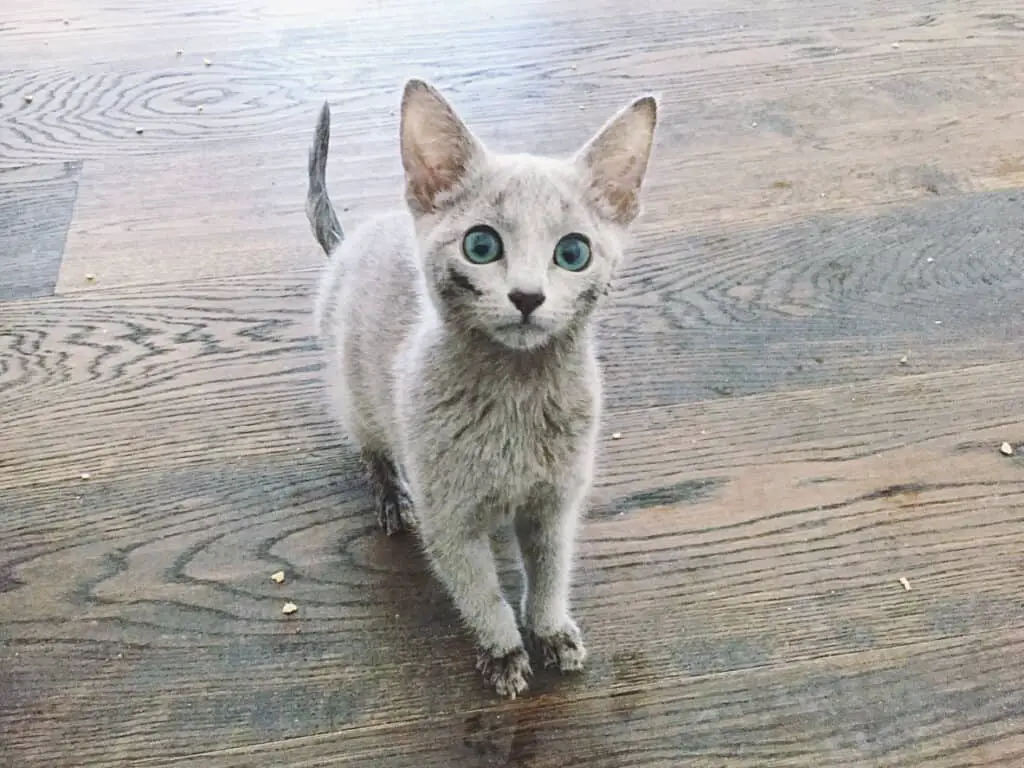
Generally, a six-month-old kitten should weigh around 8 pounds and gain about 1 or 2 pounds a week until they reach 12 months old. Cats of 12 months and older should weigh about 7 to 15 pounds.
Your kitten may reach sexual maturity at about 4 to 8 months and start going into heat. The cycle lasts for a week, then repeats about every three weeks.
To prevent unwanted pregnancy, you can have your cats spayed or neutered when they reach 5 or 6 months old. If you want to wait, that’s okay—older cats can safely have this procedure too.
Three years to six years
If your Russian blue were a human, this would be their twenties or thirties—the prime age of their life. They are strong and active and usually relatively healthy. Since Russian blues are natural breeds, they are less likely to develop health conditions.
If you have more than one cat, you may also notice distinct personalities and preferences, including a “favorite pet parent.” Russian blues are affectionate with everyone in the family, but they can get more attached to one person.
Seven to ten years
Your Russian Blue is now middle-aged and may start to slow down and be less active. A lower metabolism can increase your cat’s risk of gaining weight and becoming obese.
You may need to change your pet food to one that suits your cat’s energy levels and nutritional needs. And since it’s natural for an older cat’s coat to start looking less shiny, you may need to get better shampoos or ask your vet about vitamins that can restore its sheen.
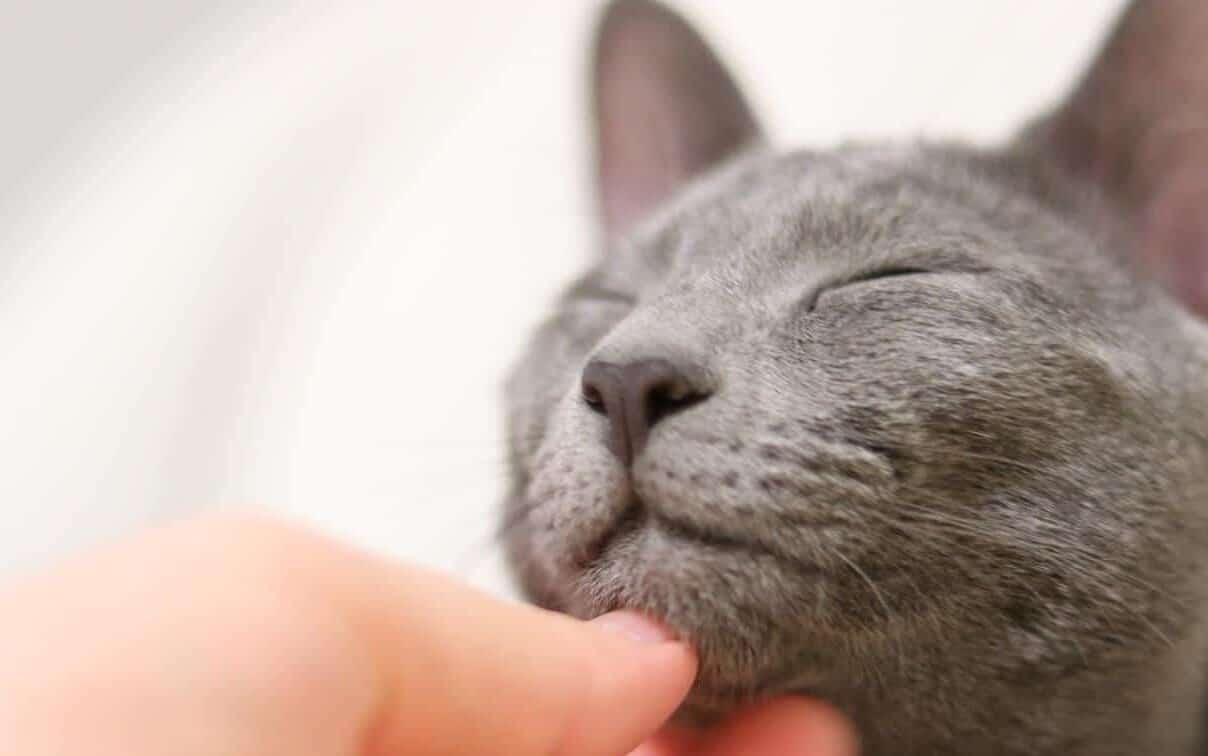
Eleven years and older
Russian blues have a life expectancy of about 15 to 20 years, considered the senior or geriatric age. They are noticeably slower and may have difficulty moving around or getting in and out of the cat box.
The most important thing is to keep your senior cat as healthy, happy, and comfortable as possible. Visit the vet for checkups to monitor for potential issues. You will need pet food for senior cats since they require more protein, healthy fats, and antioxidants.
You may need to get a lower litter box and make their food and water more accessible. Since senior cats may have impaired thirst sensitivity, dehydration may be a risk. If you feel your cat isn’t getting enough water, switch to moist cat food.
Interested in the lifespan of other cats and how to make sure your cat lives as long as possible? Have a look at our article titled: How Old Can Cats Get?
Our Final Thoughts – Love for a lifetime
With proper nutrition and care, Russian blue cats will live a long and healthy life. However, your fur baby’s needs may be unique depending on their constitution, lineage, or other personal factors. Consult with your vet about what is best for your cat.
Want to adopt a Russian Blue cat after reading this?
Everything You Need To Know Before Adopting a Russian Blue Cat.
Love Cats?
Then you will love our other content as well. Have a look at these popular posts on our website:
-
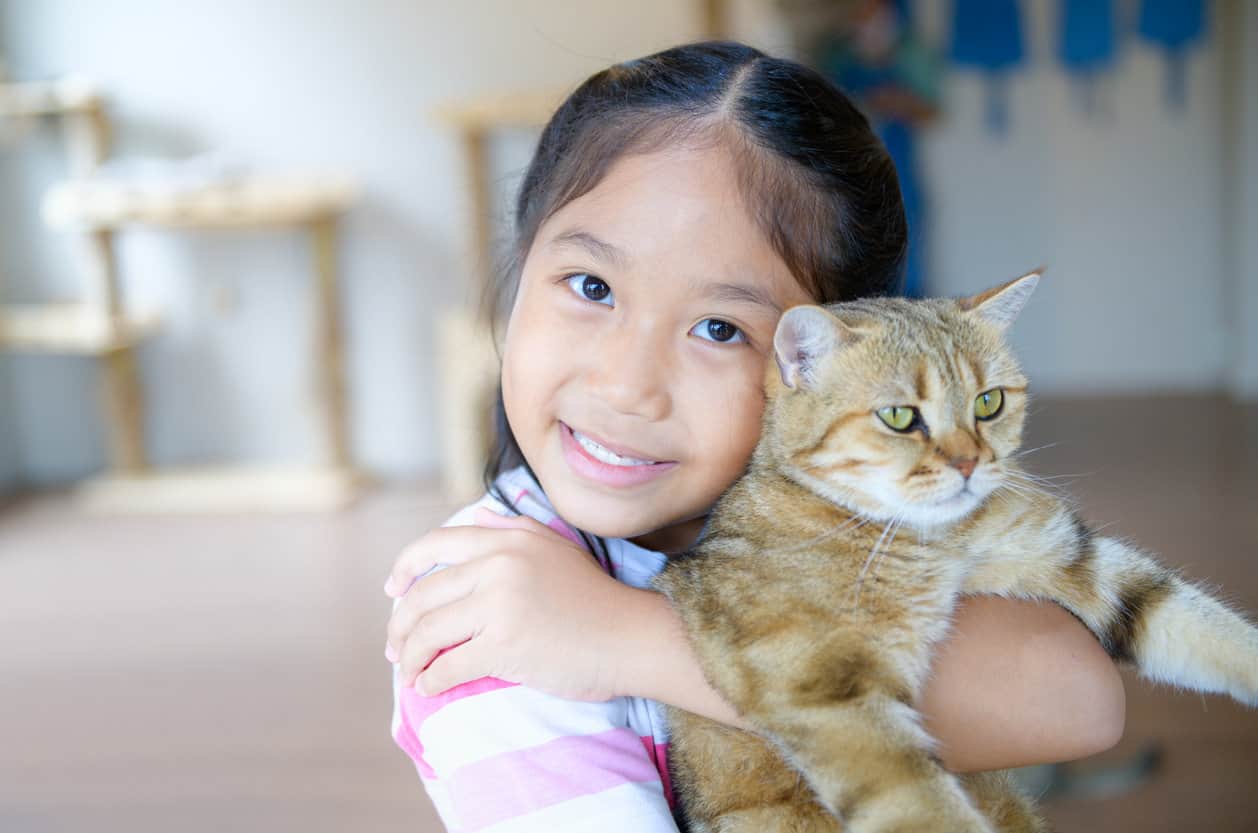
10 Ways to Make Your Cat Live Longer
The oldest cat to ever live passed away at the old age of 38. On average, household cats live between […]
-

12 Reasons Why Siamese Cats Cry at Night
Siamese cats are a popular breed of cats that many people choose to have as pets. Perhaps you have heard […]
-
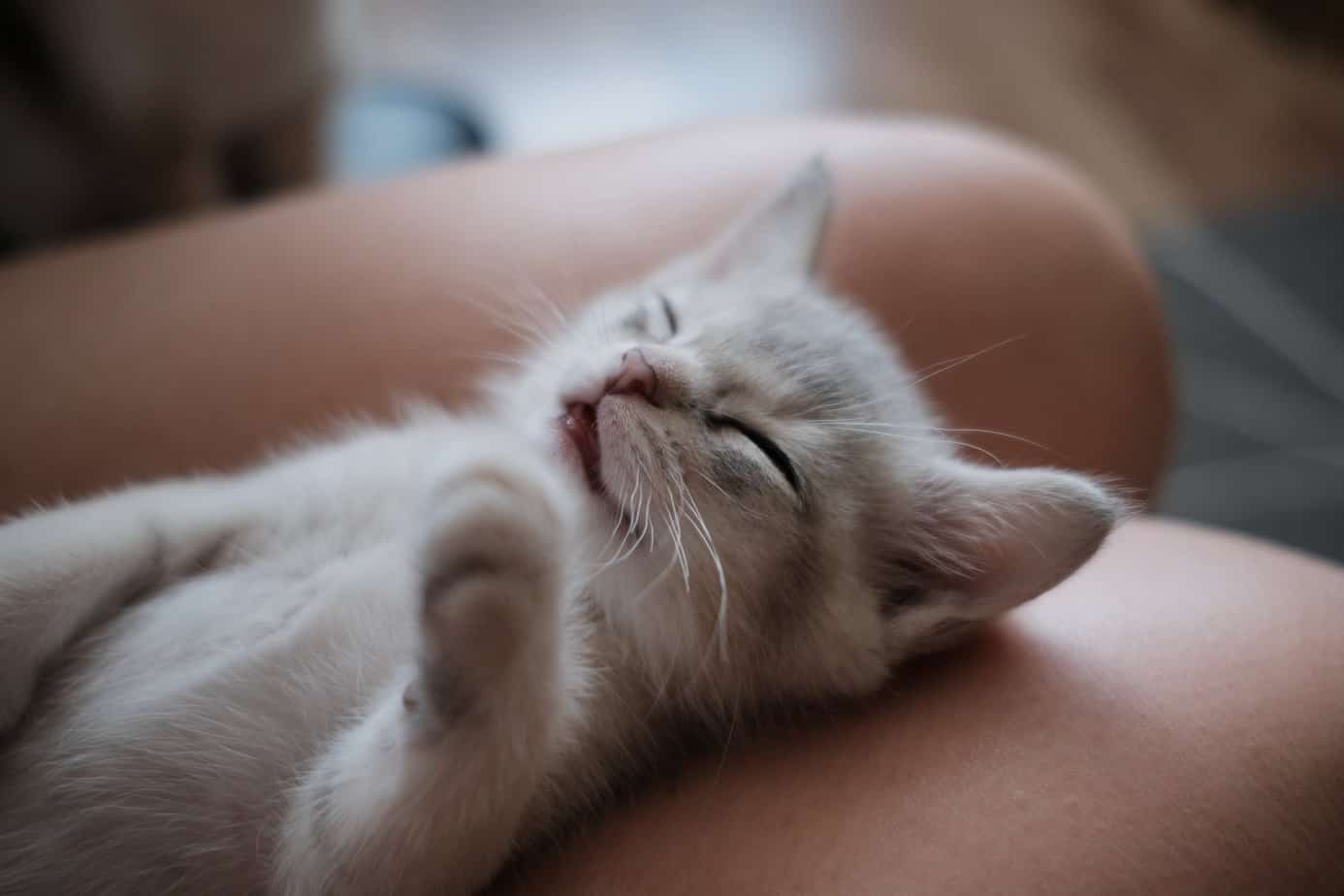
15 Incredible Ways That Cats Show Affection For Humans
Wondering how cats show their affection for humans? We have listed several incredible ways that cats are trying to show their love for us.

